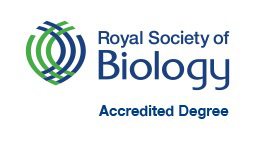Ecology Code C180 Attend an Open Day Attend an Open Day Clearing places available – 0800 121 40 80
Apply NowKey Facts
C180-
UCAS Tariff
120 - 104
-
Course duration
3 years
Available for September start 2025
Further details on entry requirements
Apply NowDue to the urgent need to document, understand and ultimately prevent the decline of biodiversity, graduate ecologists are in high demand. The Ecology degree at Aberystwyth University aims to provide you with the academic knowledge and practical skills to meet this demand.
On the Ecology degree, you will study the interactions between organisms and their environment, building the essential foundation on which to develop your understanding of how wildlife will respond to current and future environmental threats, including pollution, climate change, invasive species and habitat destruction.
Our aim is to train you to be part of the next generation of ecologists who will respond to environmental threats, identify solutions and help conserve biodiversity into the future.
This course is accredited by the Royal Society of Biology.
Course Overview
Modules September start - 2025
Please note: The modules listed below are those currently intended for delivery during the next academic year and may be subject to change. They are included here to give an indication of how the course is structured.
| Module Name | Module Code | Credit Value |
|---|---|---|
| Climate and Climate Change | BR16620 | 20 |
| Comparative Animal Physiology | BR16720 | 20 |
| Ecology and Conservation * | BR19320 | 20 |
| Genetics, Evolution and Diversity | BR17120 | 20 |
| Microbial and Plant Diversity * | BR19920 | 20 |
| Skills for Wildlife Scientists * | BR15720 | 20 |
| Module Name | Module Code | Credit Value |
|---|---|---|
| An Introduction to Landscape Ecology and Geographic Information Systems | BR25520 | 20 |
| Climate Change: Plants, Animals and Ecosystems | BR21120 | 20 |
| Research Methods * | BR27520 | 20 |
| Wildlife Surveying | BR29620 | 20 |
Options
| Module Name | Module Code | Credit Value |
|---|---|---|
| Environmental Microbiology and Monitoring | BR26020 | 20 |
| Freshwater Biology | BR22020 | 20 |
| Invertebrate Zoology | BR25420 | 20 |
| Marine Biology | BR22620 | 20 |
| Vertebrate Zoology | BR26820 | 20 |
| Module Name | Module Code | Credit Value |
|---|---|---|
| Environmental Regulation and Consultancy | BR35620 | 20 |
| Population and Community Ecology | BR33920 | 20 |
| Research Project * | BR36440 | 40 |
Options
| Module Name | Module Code | Credit Value |
|---|---|---|
| Advances in Crop and Grassland Production | BR37220 | 20 |
| Behavioural Neurobiology | BR35320 | 20 |
| Global Biodiversity Conservation | BR33420 | 20 |
| Sustainable Land Management | BR30420 | 20 |
| Terrestrial Ecology Fieldcourse | BR36620 | 20 |
| Wildlife Conservation | BR34520 | 20 |
* Also available partially or entirely through the medium of Welsh
Careers
Teaching & Learning
Student Testimonials
Typical Entry Requirements
UCAS Tariff 120 - 104
A Levels BBB-BCC with B in Biology
GCSE requirements (minimum grade C/4):
English or Welsh, Science and Mathematics
BTEC National Diploma:
DDD-DDM in a specified subject
International Baccalaureate:
30-28 with 5 points in Biology at Higher Level
European Baccalaureate:
75%-65% overall with 7 in Biology
English Language Requirements:
See our Undergraduate English Language Requirements for this course. Pre-sessional English Programmes are also available for students who do not meet our English Language Requirements.
Country Specific Entry Requirements:
International students whose qualification is not listed on this page, can check our Country Specific Entry Requirements for further information.
The University welcomes undergraduate applications from students studying the Access to Higher Education Diploma or T-level qualifications, provided that relevant subject content and learning outcomes are met. We are not able to accept Access to Higher Education Diplomas or T-levels as a general qualification for every undergraduate degree course.
Our inclusive admissions policy values breadth as well as depth of study. Applicants are selected on their own individual merits and offers can vary. If you would like to check the eligibility of your qualifications before submitting an application, please contact the Undergraduate Admissions Office for advice and guidance.

